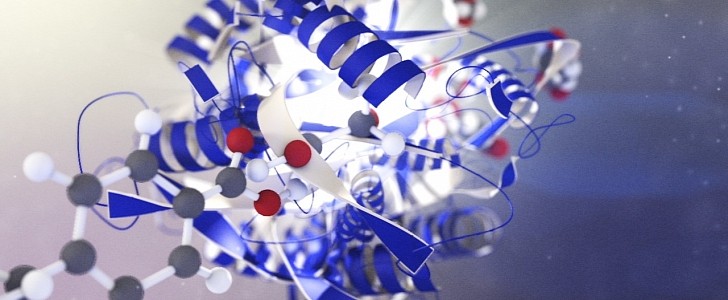When one of the world’s biggest tire manufacturers and an innovative bio-industrial solutions provider work together, only good things can happen. A sustainable future from the automotive perspective is not just about zero emissions, but also about using recyclable materials, whenever possible. And that is what Michelin and Carbios are achieving.
Michelin announced sometime last week the successful testing of enzymatic recycling technology for PET waste, developed by Carbios, in tire production. This means that, for the first time, automobile tires can be manufactured out of recycled fibers that are not only sustainable, but also as performant as standard PET fibers.
It’s not the first time that complex plastics are recycled using thermomechanical methods, but, until now, these types of recycled plastics didn’t meet the requirements for pneumatic applications. What Carbios has achieved is a recycling technology that transforms any type of PET-based plastics into a high-performance fiber that is perfectly adequate for car tires.
Basically, what Carbios does is take used plastic bottles, polyester clothing and other plastic products people usually throw away and use an enzyme to depolymerize the PET, which can then be used in a variety of applications, including car tires. What makes it special is that it has important properties such as breakage resistance and thermal stability, making it adequate for application in the car industry.
Michelin was the first to successfully test and apply this innovative PET that is both recycled and recyclable. This is an important step towards their ambitious goal of using 100% sustainable materials, by 2050. Until then, their other milestone is to get to 40% use of recycled or renewable materials, by 2030.
Considering that 1,6 billion car tires, from various companies, are sold globally every year, having at least a percentage of them be sustainable would represent a major shift.
It’s not the first time that complex plastics are recycled using thermomechanical methods, but, until now, these types of recycled plastics didn’t meet the requirements for pneumatic applications. What Carbios has achieved is a recycling technology that transforms any type of PET-based plastics into a high-performance fiber that is perfectly adequate for car tires.
Basically, what Carbios does is take used plastic bottles, polyester clothing and other plastic products people usually throw away and use an enzyme to depolymerize the PET, which can then be used in a variety of applications, including car tires. What makes it special is that it has important properties such as breakage resistance and thermal stability, making it adequate for application in the car industry.
Michelin was the first to successfully test and apply this innovative PET that is both recycled and recyclable. This is an important step towards their ambitious goal of using 100% sustainable materials, by 2050. Until then, their other milestone is to get to 40% use of recycled or renewable materials, by 2030.
Considering that 1,6 billion car tires, from various companies, are sold globally every year, having at least a percentage of them be sustainable would represent a major shift.

